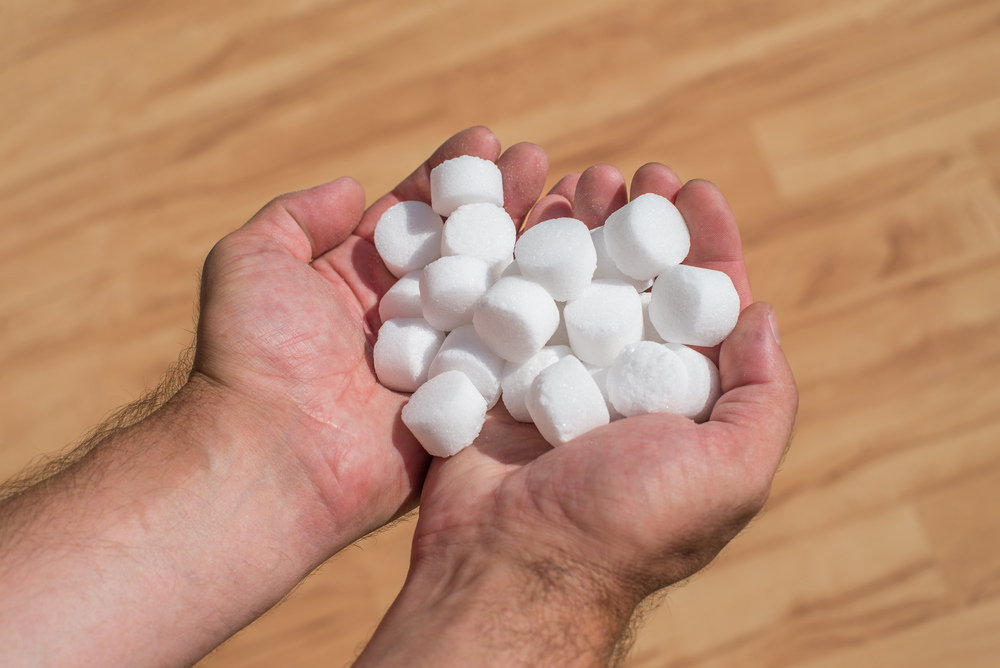
Water Softeners: Myths vs. Facts – What You Need to Know
Water softeners play a vital role in improving the quality of water in homes and businesses by removing minerals that cause hardness. However, there are several misconceptions surrounding water softeners that can lead to confusion and misinformation. In this comprehensive guide, we’ll debunk common myths and uncover the facts about water softeners, helping you make informed decisions about water conditioning for your home or business.
Understanding Water Softeners
What is a Water Softener?
A water softener is a device that removes minerals such as calcium and magnesium from hard water through a process called ion exchange. Hard water contains high levels of these minerals, which can cause scale buildup in pipes, appliances, and fixtures, leading to reduced efficiency and potential damage over time.
How Does a Water Softener Work?
Water softeners work by passing hard water through a tank filled with resin beads coated with sodium ions. As the water flows through the resin bed, the calcium and magnesium ions are exchanged for sodium ions, effectively softening the water. The softened water is then distributed throughout the home or business, providing numerous benefits for plumbing systems and water-using appliances.
Water Softener Myths Debunked
Myth: Water Softeners Remove Essential Minerals
Fact: Water softeners primarily remove calcium and magnesium ions, which are responsible for water hardness. These minerals are not essential for human health and can be obtained through other dietary sources. Softened water remains safe and suitable for drinking and cooking.
Myth: Water Softeners Waste Water and Salt
Fact: While water softeners do require periodic regeneration cycles to recharge the resin bed with sodium ions, modern systems are designed to minimize water and salt consumption. High-efficiency water softeners use advanced regeneration technologies and salt-saving features to reduce water and salt usage, making them more environmentally friendly and cost-effective.
Myth: Softened Water Feels Slippery or Slimy
Fact: Softened water may feel different to some people initially, as it lacks the mineral content found in hard water. However, the sensation of “slippery” or “slimy” water is often exaggerated and typically fades over time as individuals become accustomed to the feel of softened water. In reality, softened water leaves skin and hair feeling cleaner and smoother, as it rinses away soap and residue more effectively than hard water.
Myth: Water Softeners are Expensive to Install and Maintain
Fact: While there is an initial investment associated with purchasing and installing a water softener, the long-term benefits far outweigh the costs. Water softeners help prevent costly plumbing repairs, extend the lifespan of water-using appliances, and improve overall water quality, resulting in savings on energy bills and maintenance expenses over time.
Additionally, routine maintenance requirements for water softeners are minimal, consisting mainly of replenishing salt and occasionally cleaning or replacing components as needed.
Benefits of Water Softeners
Prevents Scale Buildup
Water softeners effectively prevent scale buildup in pipes, fixtures, and appliances by removing hardness minerals from the water. This helps maintain optimal water flow, improve water pressure, and extend the lifespan of plumbing systems and appliances.
Reduces Soap Scum and Residue
Softened water lathers more readily and rinses away soap and residue more effectively than hard water, resulting in cleaner dishes, laundry, and surfaces. This reduces the need for excessive detergent and cleaning products, saving both time and money.
Protects Water-Using Appliances
By reducing the risk of scale buildup and corrosion, water softeners help protect water-using appliances such as dishwashers, washing machines, and water heaters. This extends their lifespan and improves their efficiency, resulting in lower energy consumption and maintenance costs.
Conclusion
Water softeners play a crucial role in improving water quality and protecting plumbing systems and appliances from the harmful effects of hard water. By debunking common myths and understanding the facts about water softeners, homeowners and businesses can make informed decisions about water conditioning and enjoy the numerous benefits of softened water. Whether you’re considering installing a water softener for the first time or upgrading to a more efficient system, understanding the truth behind water softener myths is essential for ensuring optimal performance and satisfaction.
Got Questions? Let Us Help!
Welcome to Royal Water Works, Inc.! We are a family-owned business that has been serving the heart of Pisgah Forest, NC for over twenty years. As an environmental service company, Royal Water Works, Inc. partners with contract operations for water testing, water filtration design, wastewater operations, iron removal, PH adjusting, ultraviolet disinfection, and more. We provide a high degree of customer service and quality work to ensure we get the job done. Call us today; we can’t wait to hear from you!
Categorised in: Water Softeners
